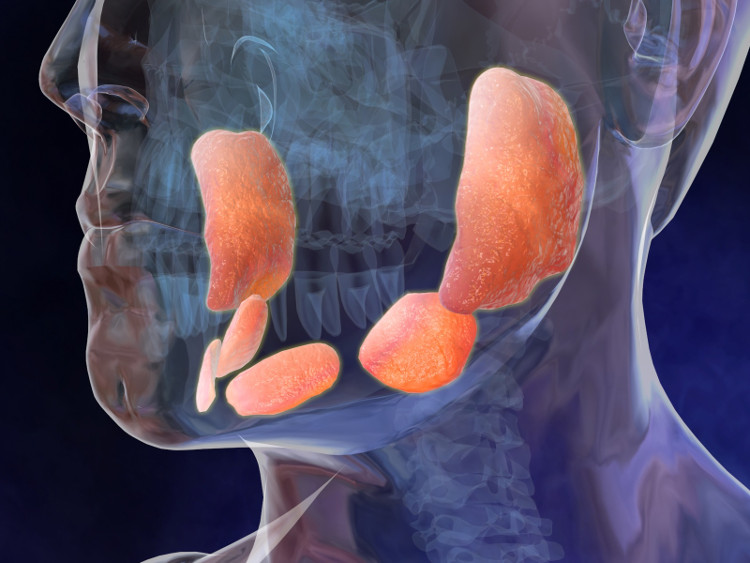Symptoms of mumps
Mumps is caused by a virus, usually occurs in young children, and spread through saliva. However, adults can still be infected.
The World Health Organization (WHO) defines mumps as an infectious disease , which can occur at any age. In which children 5 to 8 years old are most vulnerable, adults are less affected. This disease causes many dangerous complications, the most severe is infertility.
The study showed that one of the dangerous complications and severe consequences of mumps caused by testicular atrophy in men (high proportion) or ovarian failure in women (low percentage). Experts recommend that people with mumps should be detected and treated promptly, with a reasonable diet to prevent dangerous complications.

Mumps is an infectious disease.
This disease can be detected based on the following symptoms:
- When newly infected with mumps virus, the patient feels uncomfortable, afraid of wind, headache, pre-ear pain, difficulty chewing (appearing about one to two days).
- The patient has a fever of 39 to 40 degrees Celsius for 3 to 4 days, saliva.
- One side of the cheek (parotid gland) begins to swell, after one or several days it will spread to the other side, causing pain when swallowing saliva.
- The swelling is painful but not red, the skin is shiny, not pressed, no pus, the throat is slightly red, the stenon tube is slightly raised.
Treatment and prevention of mumps:
- Need to reduce fever, lower body temperature with warm towel.
- The infected person should wear a mask when contacting other people to prevent infection.Notice to keep the body clean.Do not arbitrarily use oral medicines, topical drugs, apply on the swollen area to avoid poisoning.
- Isolation of patients about 2 weeks from the detection of the disease.
- Abstain from cold water, abstain from wind.
- Rest, restrain exercise (especially when detecting testicles with painful swelling).
- Oral hygiene, drinking plenty of water and gargling with physiological saline or specialized mouthwash.This will reduce dry mouth and prevent bacteria from having a favorable growth environment.
- Eat soft food, easy to swallow, easy to digest but still have to ensure adequate nutrition.Do not eat sticky food, carp, carp.
- Eating a variety of green vegetables and fresh fruits helps supplement the vitamins and minerals necessary for the body, increasing immunity.
- In the case of persistent high fever, no fever can be reduced or complications appear soon.
- Measures to prevent and treat mumps effectively
- What to do when children have mumps?
- Infertility due to testicular atrophy because of mumps
- America: Outbreaks of mumps infection
- Potential illness behind the kiss
- Experts warn 10 symptoms that cannot be underestimated
- Signs to recognize Zika virus infection
- Symptoms should not be ignored
- The cancer has no symptoms early
- Testicular cancer: Causes, symptoms and treatment
- Wi-Fi waves can harm children
- Warning signs of skin cancer that you cannot see with the naked eye
 Green tea cleans teeth better than mouthwash?
Green tea cleans teeth better than mouthwash? Death kiss: This is why you should not let anyone kiss your baby's lips
Death kiss: This is why you should not let anyone kiss your baby's lips What is salmonellosis?
What is salmonellosis? Caution should be exercised when using aloe vera through eating and drinking
Caution should be exercised when using aloe vera through eating and drinking